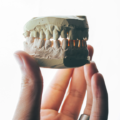Acupuncture….the best stress hack!?????????
If you have been keeping up to date on our insightful blogs, we recently talked about what stress is, and how it impacts our health. Some ways stress impacts us are good, like if you are being chased by a tiger. Some of them are bad if that tiger chases you daily, or if it at least feels like it. We thought we would continue from here and go further into Acupuncture & Stress and if it really can help.
Many of my patients, either during, or after an acupuncture treatment, will comment almost in surprise at how relaxed they feel. They will then ask, how on earth does acupuncture work like that? I’ll often attempt a long-winded resp??onse but usually find my patients casually looking at their watch wondering how long this will take. So I thought I’d put it into some words to help us both.
Prolonged stress and its various physiological effects are mentioned in more detail in my previous blog. Click here for my blog on stress’s physiological effects.
Traditionally, acupuncture and Chinese herbal medicine have developed over the centuries with the main intention of being to return the body to its optimal health. Essentially, the origin of disease or ill health will be predated by some sort of significant influence on our body, such as environment, lifestyle, emotional, genetic or pathological factors. Depending on the intensity and the duration, any of these could disturb our natural biorhythm. This can lead to a variety of symptoms or a breakdown in the functionality of our body’s systems.
Some common examples could be:
- Too much sugar that could lead to metabolic disorders
- A virus that can weaken the body
- Prolonged stress response can impair our immune, cardiovascular or digestive system
As acupuncture developed as a health system throughout the millennia, the early texts spoke about important concepts such as circulation, digestion and pathological disease. As the awareness of health and balance developed so did the techniques such as acupuncture, used to restore health and promote longevity.
Fast forward to the modern day and using science, the exact scientific mechanism of how acupuncture works is not fully understood. But through research and MRI studies these are some of the known effects on the brain and therefore our bodies as a whole. Interestingly enough, acupuncture will induce responses that are effectively the opposite of stress.
These responses include:
- Release of endorphins and neurotransmitters (the happy hormones): These endorphins help alleviate pain and promote feelings of well-being. Serotonin & dopamine will enhance your mood and assist with excessive cortisol release.
- Modulation of pain signals: Acupuncture can modulate the activity of pain-sensing nerve fibres. It can inhibit pain transmission in the spinal cord and activate pain-relieving signals from the brain.
- Activation of the immune system: Acupuncture has been shown to modulate immune function by influencing the activity of immune cells and cytokines.
- Regulation of blood flow: Acupuncture promotes vasodilation (widening of blood vessels) and improves blood circulation to the targeted areas. This helps deliver oxygen and nutrients to tissues, remove metabolic waste products, and promote tissue healing and repair.
- Modulation of the autonomic nervous system: Acupuncture influences the balance between the sympathetic (fight-or-flight) and parasympathetic (rest-and-digest) branches of the autonomic nervous system.
As you can see the effect of the above will be to relax and calm the body. Why not get in touch and see for yourself?
Cheers, Nick

Some references:
- The effect of acupuncture on oxidative stress: A systematic review and meta-analysis of animal models
- Y Zhao, B Zhou, G Zhang, S Xu, J Yang, S Deng, Z Yao… – Plos one, 2022 – journals.plos.org
- Acupuncture for depression: a systematic review and meta-analysis
- M Armour, CA Smith, LQ Wang, D Naidoo… – Journal of clinical …, 2019 – mdpi.com
- A review on different English versions of an ancient classic of Chinese medicine: Huang Di Nei Jing
- X Ye, M Dong – Journal of integrative medicine, 2017 – Elsevier




